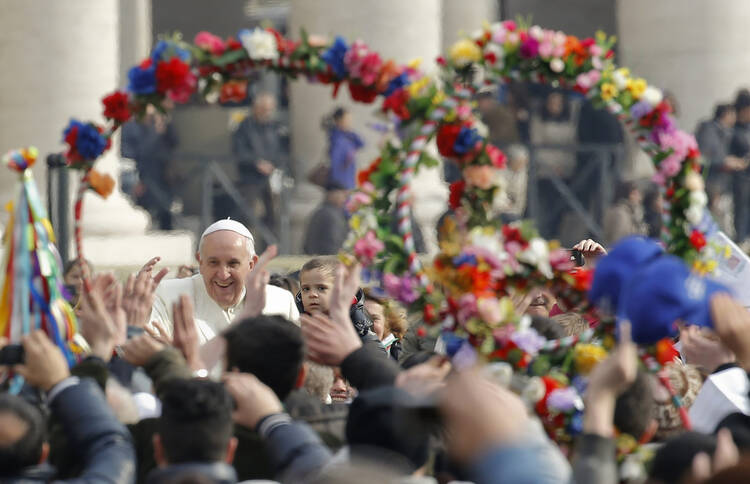It hasn't gained much attention, but a couple weeks ago Pope Francis offered some insightful words about Catholic education. Speaking on Feb. 13 to participants in the plenary session of the Congregation for Catholic Education, the Holy Father described Catholic education as "one of the most important challenges for the Church, engaged as she is today in implementing the new evangelization in a historical and cultural context which is in constant flux." The Pope noted:
Jesus began to preach the Good News in the "Galilee of the Gentiles," a crossroads for people of different races, cultures and religions. In some ways this context is similar to today's world. The profound changes that have led to the ever spreading multicultural societies requires those who work in schools and universities to become involved in the educational programmes of exchange and dialogue, with a bold and innovative fidelity able to bring together the Catholic identity to meet the different "souls" existing in a multicultural society.
A "bold and innovative fidelity": that caught my eye. Not just fidelity, but a fidelity with a freshness to it, an originality, something unprecedented. I imagine some might quibble, and say that the term "fidelity" is enough, that it bears within itself the originality that the Pope calls for. But as a teacher in a context very much like the crossroads he describes, I know precisely what he means. It is one thing to be faithful, to be an exemplary witness of the Christian faith. It's quite another to communicate this faith, not only so that the audience knows it, but so that they accept it, that they begin to appropriate those truths for their own lives.
In today's culture, needless to say, that is no minor task. As I've written at America, increasing numbers of students have little or no religious formation, let alone Catholic formation. Often, they are not familiar with the vocabulary and concepts that practicing Christians take for granted. In this context, it's not enough just to present the teachings of the Church, to break them down and explain them lucidly. Today, the Christian educator has to find ways to inspire the search for truth, for only when a student assumes this search as an urgent personal priority does the path of authentic faith become possible. But then you're faced with the ghost of Pilate, for inevitably comes the response, "What is truth?" That, too, for students, is contestable ground. They don't immediately understand its significance, or why it should attract their attention. Thus, the need for innovation.
But I'm interested in what readers think. What do you understand to be the meaning of the Pope's language, the "bold and innovative fidelity" of which he speaks? Where, today, do you find it in action?








